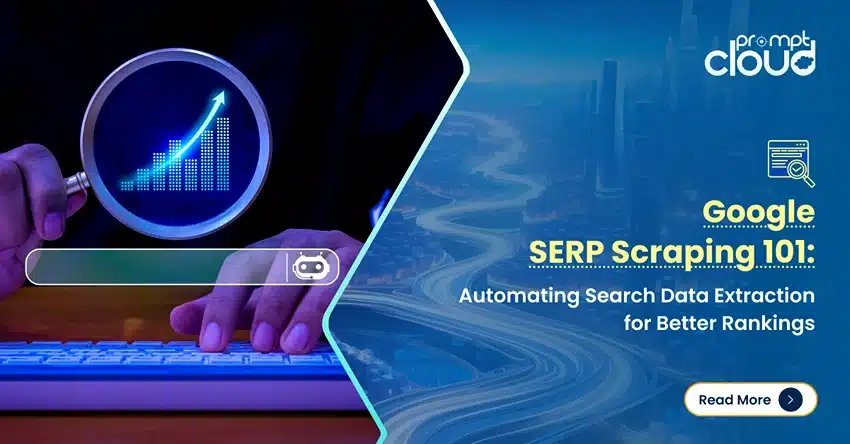Scraping Video Game Data from the Steam Game Store
Blogs are great, but what use is a blog if you do not have the latest content in it? In case you run a gaming blog, or you’re a gaming fanatic, or if you just want the latest news from the gaming world, then you can definitely crawl data from the Steam game store. But wait, this article on web scraping video game data is not just for blog-owners, but also for gaming-retailers, or any online website that sells gaming merchandise or is involved with the video game universe in any manner.
Why Crawl the Steam Game Store?
Ask any gamer where he bought his latest game from, and he is most likely to tell you “Steam”. Steam is to gaming like Amazon is to eCommerce. Steam is well known as a digital distribution platform for video games in the business world, but in reality, it is much more than that. It is a social networking site for gamers.
Often games are launched on Steam while they are still in their Beta stage and in this way, the game developers get real-time feedback from gamers. Then the feedback is again incorporated in the game before it is launched officially. One such game is PUBG (Player Unknown’s BattleGround) which was launched and is available on Steam.
Steam has been there for a while now, and today it accounts for a sizable chunk of gaming sales worldwide. Some of the biggest benefits of steam are that it prevents piracy and helps connect people to play online games together–the games that are most popular these days. So, we will be discussing the different ways in which scraped gaming data can benefit people, ranging from Blog owners to Advertisement Agencies.
Upgrade your Gaming Blog using Web Data Scraped from Steam
In case you are writing a gaming blog, there is no better website to web scrape Steam for content. From Steam, you will be able to crawl details of the most popular games at any point of time. This will give you a number of topics to write on. You can crawl the most popular comments on these games and this will provide you with more ammunition.
Suppose someone has spoken about certain changes that should definitely be incorporated in the map of a particular game, and you see that many others have reiterated the same demand, you can write an article about the deficiencies in the maps of that game and even provide some comments from top users. You can follow it up with a poll and share the link in various social media platforms. This way you can attract more people to your blog using Steam Data indirectly.
Steam often holds massive sales, during which it sells popular titles at even half their prices. Well, they do not have to open physical stores to get the games to you. All they need to do is host the games on their servers. You can just download it and play it by connecting to steam whenever you want. This way Steam saves money and so do you.
However, steam doesn’t advertise which titles are on sale every day (because advertisement costs money) on other websites, like e-commerce sites. So in case you can crawl data from Steam regularly and keep an updated list of games that are being sold at huge discounts in Steam, word will go around and soon gamers will be checking your website every single day, in order to make sure that they get the best deals.
Even deals in Steam come under various categories, such as weekend deals, deals of the month, deals of the day, and more. You can use the same or similar category names for deals and display links for them on your website. You can also crawl the hottest topics from Steam and hold discussions on them on your website while offering free games monthly for most active participants. This will further increase organic traffic for your website.
How can Web Scraping Steam Store Data Help Gaming Retailers?
A huge percentage of games are still bought from online retailers and brick and mortar stores (more than 3-4 times the Steam sales). For them, there is a cost of keeping an inventory and selling the games. Thus, matching the lowest prices of steam might prove to be impossible. However, one must keep in mind that Steam’s offers change with time and at no point do they offer discounts on all titles.
So, by scraping data about which titles are on sale on steam, you can try to match the prices if possible and advertise something like–“Now selling at prices lower than Steam!”, or sell games that are not in discount currently, and sell those games with the same advertisement! Sounds good?
Well, that’s not all. In case you are a gaming retailer, you can also crawl data to find the hottest games and thus change your inventory. This will help keep your costs lower than usual, and in this way, you will also be able to offer your customers higher discounts.
Best Source for Updated Gaming Information
Steam provides easy-to-use APIs for game builders so that they can connect to their players easily and provide them patches or game settings info, or help them in case of crashes. Thus, the best place to crawl data to get the latest information, be it about patches, tips, and tricks, or game settings optimization, is Steam!
Hosting Gaming Competitions as a Mode of Advertisement
These days, gaming competitions are being held all over the world, and big companies are backing them, so as to give more exposure to their brands. From Boeing to Nvidia, many companies are hosting tournaments, where people compete in the latest games.
If you are a tech company or are somehow related to gaming, you can host a gaming competition or tournament to get instant public exposure and popularity. For help, you can crawl data from Steam to decide which game to hold the competition on, or even which top players to invite as chief guests.
Can we Build a Recommendation Engine Using Web Scrape Steam Data?
A recommendation engine recommends products to people based on their previous purchases, or preferences. Although this idea is a bit far-fetched, it is theoretically simple enough, If one can crawl enough data from Steam, to create an understanding of which type of people would like which type of games, then building a recommendation engine will be easy.
For example, say if a person likes Games A and B then if you can easily predict that he will definitely like Game C, then in this way, you can recommend people’s games by asking them just 5-10 questions.
But How do we Crawl the Data?
Steam has a complicated web page, and it has multiple pages with multiple links, holding data in different formats. Scraping web data from steam is no simple task, and unless you have a team of Python and R specialists who have previously worked in data scraping, I advise you not to take on the challenge.
In this case, it will be better for you, if you instead take the help of a web scraping service provider like PromptCloud, whom you can apprise about your needs and they can just extract those specific data from Steam and deliver it in a suitable plug and play format.


















